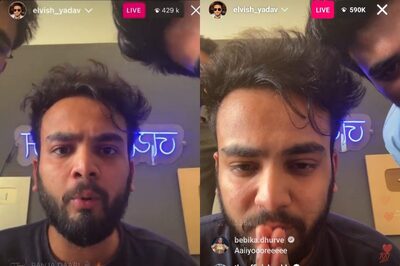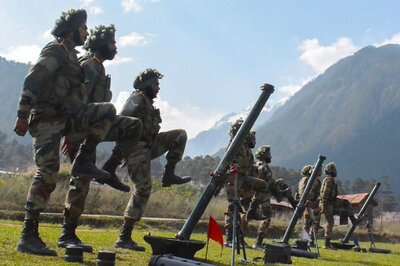
views
A recent report in Bloomberg has tied the Boeing Co.’s 737 Max crisis to Indian engineers working for HCL Technologies and Cyient Ltd. The report said that American plane manufacturer company Boeing and its subcontractors relied on temporary Indian workers from the two companies, who were earning as little as Rs 620 ($9) per hour, to develop and test the 737 Max software. The Boeing 737 Max is the infamous line of planes linked to the Lion Air crash last October and the Ethiopian Airlines disaster in March. After the two fatal crashes, which killed a total of as many as 346 people, regulatory authorities around the world grounded the aircraft series until further notice.
The engineers from HCL and Cyient, many of them college graduates, were allegedly given the task of writing codes for complex specifications set by Boeing. “It was controversial because it was far less efficient than Boeing engineers just writing the code,” Mark Rabin, a former Boeing software engineer, told Bloomberg. He said this resulted in a lot of “going back and forth” due to incorrect codes.
The Bloomberg report reviewed some of the resumes posted by HCL engineers on social media that said that the Indian engineers helped develop and test the Max’s flight-display software, while employees from Cyient handled software for flight-test equipment. In one such post, an HCL employee summarized his duties with a reference to 737 Max: “Provided quick workaround to resolve production issue which resulted in not delaying flight test of 737-Max (delay in each flight test will cost very big amount for Boeing).”
Boeing, however, refuted the allegations and said the company did not rely on engineers from HCL and Cyient for the Maneuvering Characteristics Augmentation System, which was linked to the two crashes. Boeing also confirmed that it didn’t rely on either firm for another software issue that was disclosed after the crashes -- a cockpit warning light that wasn’t working for most buyers.
HCL also issued a statement saying, the company “is not associated with any ongoing issues with 737 Max”.
Boeing’s association with HCL dates back to 2010 when the former opened what it called a “centre of excellence” with HCL in Chennai, saying the companies would partner “to create software critical for flight test”. Later, in 2011, Boeing added Cyient, then known as Infotech, to a list of its “suppliers of the year” for design, stress analysis and software engineering on the 787 and the 747-8 at another centre in Hyderabad.
Cyient also refutes the claim - "As Boeing clarified, Cyient was not involved in the design of the MCAS or the cockpit warning light. While Cyient generally does not comment on individual client relationships, we confirm that we have a long-standing relationship with The Boeing Company (Boeing). Cyient takes immense pride in our association with Boeing and look forward to growing our partnership across engineering, design and manufacturing across various platforms. Cyient is honoured to be recognized by Boeing as their Supplier of the Year in four of the past eight years."



















Comments
0 comment